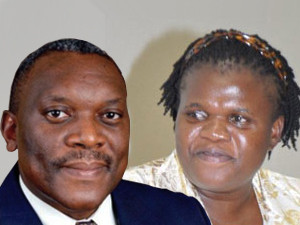
SA's two ICT ministries, which have been sparring over jurisdiction issues - due largely to the bestowal of the telecoms regulator to the new government communications department - since their birth last year, have seemingly buried the hatchet.
This comes as SA faces the uphill challenge of switching on digital TV this year, and prepares the revamped ICT policy that will ultimately be the framework that affects the realisation of a "fully connected society".
Deputy minister of the Department of Telecommunications and Postal Services (DTPS) Hlengiwe Mkhize said this week the department - headed by Siyabonga Cwele - and the Department of Communications (DOC) under Faith Muthambi were "working together - and should continue to do so - to share experience and expertise".
She noted government was in the process of implementing one ICT policy and legislation, despite the separation of the DTPS and the DOC. "We as ministries are also engaging on a regular basis."
The ICT policy review process would culminate in the adoption of a White Paper policy - due to be completed by the end of next month, Mkhize said. "The aim of the ICT policy review, among others, is to improve the existing legislation relating to electronic communications services [and] address the funding, governance and institutional frameworks of our regulatory and implementation bodies to avoid duplication of resources and expertise."
Migration row
Although the two departments have denied the existence of a turf war around the critical issue of digital migration, it emerged in August last year that a power struggle between Cwele and Muthambi had derailed the gazetting of government's new digital migration policy at the end of July.
At the time, the source of the tension between the departments was reportedly the fact that Muthambi had not been consulted on the final migration plan.
By the time the end of the year rolled on, the industry had all but given up on SA meeting the international switchover deadline of June 2015 (as determined by the International Telecommunication Union).
Mkhize on Tuesday gave credit to the DOC for "working hard on this matter so as to ensure that we join the world in the switch-on of digital signal by this year".
She reiterated the implementation of the broadcasting signal distribution had achieved 86% rollout by state-owned signal distribution entity Sentech, adding: "A lot of work has been done to prepare the country for the eminent digital broadcasting technology."
Mkhize showed solidarity with the DOC's efforts, saying the manufacturing of set-top-boxes locally with the participation of black businesses remains "our" priority.
ICT expert Adrian Schofield says he has no doubt the president's office told the two departments to "get on with it and work together", if they could not separate their responsibilities.
However, Schofield expresses cynicism rather than encouragement, saying: "The turf war may go on behind the scenes. [Mkhize's] bland statement that failed to admit the abysmal performance towards the digital terrestrial TV switchover was a masterpiece. [There was] no mention of the fact that the analogue signals are meant to be switched off in four months from now."
Share